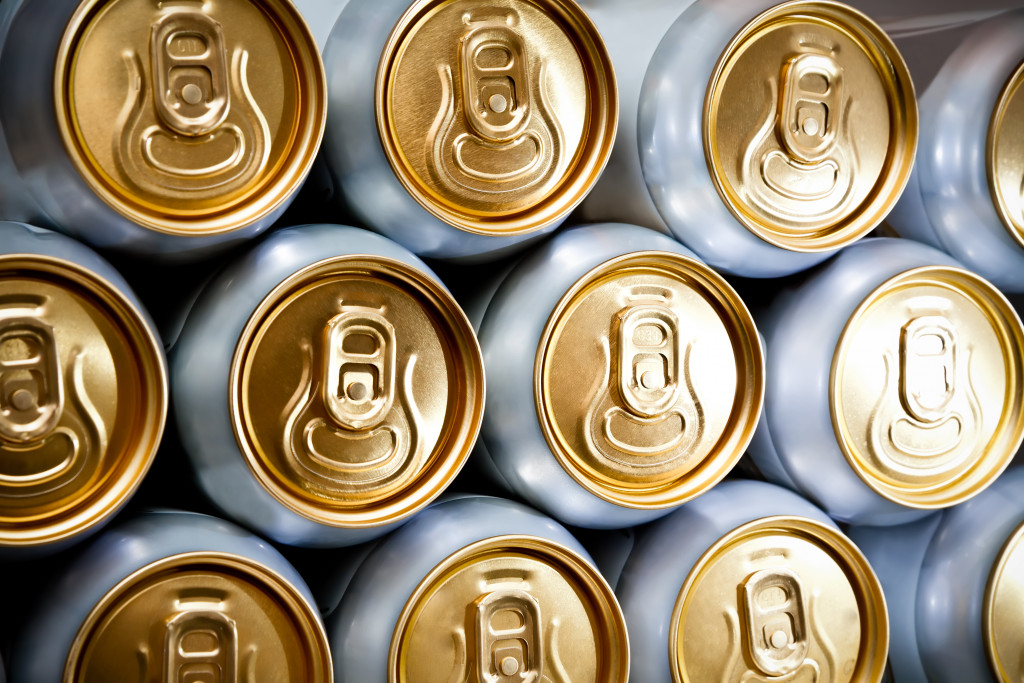The worldwide public health crisis has left people yearning for face-to-face social interaction. Apéritifs on-the-go, virtual apéros, and outside drinking in the winter as in the summer have replaced (for now) coffees-to-go and happy hours. Drinking alone at home or in public has made consumers their baristas and bartenders. Healthy, ‘cleaner,’ more sustainable, premium, and socially responsible goods will undoubtedly be this year’s megatrends.
Investment in New Technology
Early pandemic headlines focused on breakouts in food and meat processing facilities. As a consequence, more customers are questioning where and who produces their food. Experts predict that technology will continue to improve food and workplace safety in the next year.
According to Innova Market Insights, six out of ten consumers are concerned about their food. The company says new packaging technologies like invisible barcodes may help. This is in addition to premium and advanced equipment from companies that partner with other organizations. An example would be a piston filler manufacturer that provides quality machines to different sectors.
This year’s layer is transparency. Transparency will help customers comprehend and accept the goods. Digital expiry date labels enable real-time monitoring of food quality.
Beyond innovative packaging, food manufacturers increasingly embrace blockchain to monitor goods like coffee and turkeys from farm to table. Blockchain may assist with recalls and improve traceability. Nielsen at WGSN said customers want greater assurances of safety, and food producers must explain their efforts. But major businesses like Nestlé are beginning to embrace blockchain.
As the epidemic destroys their labor, meat manufacturers are speeding up plans to use more automation and robots to improve food safety. For example, engineers at the Tyson Manufacturing Automation Center are developing a robotic camera to identify product flaws.
According to Keith Belk, director of CSU’s animal sciences department, technology development has accelerated “hugely” in the United States and overseas. During the epidemic, more food safety improvements emerged. Companies began monitoring wastewater for coronavirus increases. This technique can look at foodborne diseases like salmonella or E. coli. If you’re looking for anything positive to come out of the epidemic, that’s it.
Looking into Active Nutrition

The central issue of “body resistance” is crucial. This trend has resulted in novel beverage and food ideas that promote nutrition to better deal with the varied difficulties of daily living that different age groups encounter. Body resistance focuses on items that promote a healthy lifestyle.
Holistic product solutions that promote physical, mental, and emotional health are increasing — for example, less sugar and pleasant mixes, like tea. After coronavirus, there is little question that many people’s stress levels are constantly high. They have also risen even higher in the last year owing to new difficulties and concerns. As a result, new opportunities for improving well-being and mental health arise.
Elevated Tastes
The trend of sharing food and drink on social media and encouraging others to recreate unique dishes will continue in 2021. The artsy and DIY trends represent customers’ desire to make their meals and beverages. This boosts demand for aesthetically appealing food and beverage components, including syrups, juices, flavor drops, and mixers.
Food pairing and fusion may also create culinary experiences. With suitable beverages, meals may become a flavor symphony. Premium tea blends or mocktails, from fruity to flowery to sour and spicy, provide new options to accompany excellent meals.
More and more customers seek goods that can be taken on a sensory trip to fulfill their wanderlust, relax and unwind, or treat themselves to a gourmet vacation. RTD premium cocktails and beverages with unique ingredients and tastes make these fascinating taste vacations feasible. Color and texture also contribute to the overall sensory experience.
More Mindfulness
These tendencies transcend the product itself. Responsible customers are increasingly pressuring businesses to prioritize environmental and social responsibility. The ethical movement seeks to convert commercial objectives into comprehensive efforts that include both social and ecological impacts.
Masses no longer accept lawful but morally repugnant procedures. Plant-based will undoubtedly play a significant part in future mindful consumption. Millennials are increasingly becoming vegans, vegetarians, and pescatarians. Despite their popularity on social media, vegans and vegetarians are still a minority of the population.
People affected by pandemic stress baked bread, prepared Dalgona coffee, and stored takeaway food containers. After a year of emotional feeding, customers saw the impact on their mental and physical health.
The crisis also changed what was previously seen as the retail food and beverage sector’s success formula. Replacements have to be made—quickly. The big brands and artisans established virtually overnight online retailers, supermarkets and restaurants adopted new delivery models. Existing e-commerce food and drink platforms battled to maintain demand growing via supply chain disruptions.






